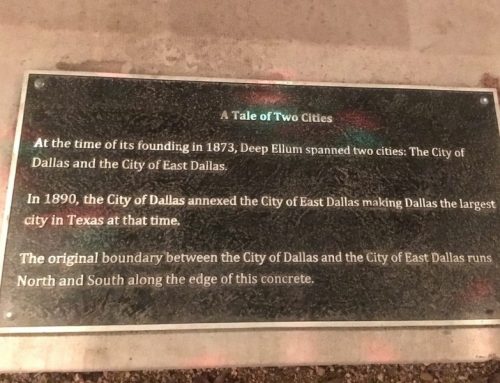
Dallas looks to be headed towards a Cite and Release policy for small amounts of marijuana, but don’t whip out the bongs just yet.
Dallas’ version of the law isn’t exactly what it sounds like. In Houston, Cite and Release means that if a person is caught with a small amount of marijuana, they can avoid jail time or fines if they turn in the captured weed and take a four-hour drug education course. This is effectively decriminalizing small amounts of marijuana, as Texas slowly works its way towards joining the 29 other states that have legalized the plant in some form or another.
Last April, the Dallas City Council voted to pass a Cite and Release policy for the city of Dallas, but our approach is a bit more heavy-handed. The Dallas policy says that if a person is caught with less than four ounces of doja, they will avoid being arrested on the spot, which will bring down the costs of housing and jailing these nonviolent criminals and will avoid the disproportionate impact the punishment has relative to the crime. They will have to come to a hearing where they could be fined, sentenced to jail time, or put on probation, but the policy shifts responsibility from the police to the county court system in dealing with and processing the defendant.
Though it is a step towards decriminalization, “Cite and Release” can mean different things in different cities, and Dallas doesn’t seem to want to join the progressive moves of many of its urban peers.
The policy was passed in April (after the same policy was rejected a year earlier) with the support of the District Attorney’s office, but against the wishes of the Dallas Police Association, a group within the Dallas Police Department. The law was supposed to go into affect October 1, but if you are toking outside of Hypnotic donuts this afternoon, you will still be arrested.
Because the policy moves more responsibility over to the county courts, funding for those courts have to be approved by the country commissioners. John Wiley Price, the most influential of the commissioners, has opposed the policy and withheld funding. In a Facebook post, he says the policy will be enforced in an unfair way to those who live in Dallas County but not they city of Dallas. “The Dallas County Commissioner’s Court was to consider a policy for the City of Dallas but there are 23 cities in Dallas County,” he writes. “Approving a program in Dallas that did not also cover say…Mesquite, Lancaster, Desoto or Seagoville, could and probably would prove unequal and unfair fair to poor people and people of color.” Because the courts are not funded, the Cite and Release policy has not taken effect.
But the other two county commissioners have said they support the policy, and that they will make sure funding comes through at their next meeting on October 17. If that happens, they hope to have the program up and running by December 1. It may be a more chill family Christmas after all.






Leave A Comment